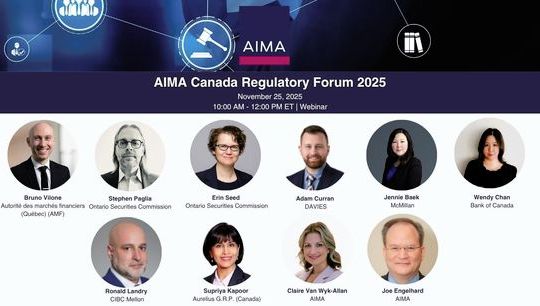Hong Kong taps into Asia Pacific growth
By Darren Bowdern, KPMG China
Published: 20 November 2023
As the opportunities rise across the region, the city is strengthening its status as the region’s hub for alternative assets
Hong Kong has long been the major hub in Asia Pacific for alternative asset management, with more assets under management and a higher concentration of industry professionals than any other jurisdiction in the region.1 But there is no doubt that the sector was impacted by the COVID-related travel restrictions that remained in place long after most other jurisdictions had reopened. These rules made it difficult for asset managers to host or attend meetings and events. More broadly, they may have dented Hong Kong’s reputation as a cosmopolitan and open city.
But since all the restrictions were lifted in early 2023 the city has fully returned to normal operations, and the Hong Kong SAR Government has emphasised that supporting the financial services sector is a priority. Besides the efforts to promote the city as a financial services hub, the Government has also introduced a number of initiatives and proposals that aim to directly benefit the alternative assets sector.
Growing opportunities
Supporting and promoting the alternatives sector in Hong Kong is important given the huge size of the opportunities. The financial services sector is the backbone of Hong Kong’s economy, accounting for more than a fifth of the city’s GDP,2 and the alternative investment sector is a crucial part of the financial ecosystem.
At the same time, a considerable proportion of the growth in AUM globally is being driven by alternative asset classes and, within that, Asia Pacific’s alternative asset class3 is growing faster than the rest of the world.
Hong Kong already manages most of the alternative assets in the region: it is the largest international asset management hub in Asia, the largest cross-border private wealth management and hedge fund centre in Asia, and the second largest private funds centre in Asia, after the Chinese Mainland, according to the Hong Kong Monetary Authority (HKMA),4 the city’s de facto central bank.
In the past decade or so, as the alternative assets industry has grown rapidly, Asia-focused firms, talent and service providers have naturally based themselves in Hong Kong. The city has therefore built the specialist expertise and knowledge spanning tax, legal, administration and investment management to handle alternative assets, including niche strategies like impact investing.
The potential for further growth in the alternative assets sector in the Asia Pacific is still massive. The number of HNWIs in Mainland China and across Southeast Asia continues to grow - from UHNWIs to the rising numbers of middle class - all of whom are seeking to preserve and grow their wealth. The number of UHNWIs in the Chinese Mainland grew by 19% in 2021 and by 14% in Asia Pacific, according to UBS, which also expects the number of US-dollar millionaires in China to double between 2022 and 2027.5
In addition, the attitude towards alternative investments is evolving. Investors in the region who formerly focused on more traditional forms of asset management and savings are developing a taste for alternatives as they seek to diversify and grow their investments.
Refining the local landscape
Hong Kong is well positioned to serve this huge and growing potential market, but the city cannot take its position as the major alternative asset management center for granted. The landscape for alternatives in Hong Kong must remain at least as attractive as other jurisdictions, including in the areas of tax and the overall regulatory environment.
To this end, the alternative assets management industry in Hong Kong has been in discussions with the government and regulators in recent years, which has resulted in the introduction of a number of incentives and initiatives.
Among the developments has been a series of measures to support the growing family office sector. In February’s Budget Speech, for example, Financial Secretary Paul Chan allocated HK$100 million (US$12.8 million) to InvestHK, a government department, over the next three years to attract more family offices.
Earlier this year, the government also announced a family office tax incentive, which introduced a zero percent tax rate on profits for UNHWIs and their family members on qualifying transactions. This tax incentive, in particular, has been widely welcomed by the industry and has already generated client interest from family offices globally.
Other incentives targeting alternative assets that have been introduced in recent years include the Open-ended Fund Company (OFC) and the Limited Partnership Fund (LPF).
Introduced in 2018, the OFC code was revised in 2020 to remove restrictions on the scope of investment, and again in 2021 to allow overseas funds to re-domicile in Hong Kong as OFCs. An OFC is eligible for profits tax exemption under the Unified Fund Exemption (UFE) regime, provided that the requirements under the Inland Revenue Ordinance are fulfilled. To encourage the use of OFCs, the government also introduced a subsidy that covers 70% of expenses paid to professional service providers (capped at HK$1 million).
The LPF Ordinance was passed in 2020 with the aim of levelling the playing field for funds in the region, especially in comparison with the Exempted Limited Partnership (ELP) in the Cayman Islands. While there is no direct tax on the Caymans’ ELPs, in Hong Kong, an LPF may also enjoy profits tax exemption, where the UFE conditions are satisfied.
In addition, the Tax Concession for Carried Interest Ordinance was introduced in 2021, where eligible carried interest allocated by the fund will be subject to a 0% tax rate. In the absence of the tax concession applying, the IRD’s position on carried interest is that it represents a fee for services rendered and therefore liable for tax to the extent that it relates to services rendered in Hong Kong.
However, to date, the results of these initiatives has been underwhelming. This has been principally due to uncertainty over how the rules apply to certain asset classes and funds, as well as a lack of clarity with respect to the application of the rules.
To help ensure that Hong Kong remains competitive, it needs to be very clear and certain that the gains made on such investment holdings do not suffer any further incidence of tax in Hong Kong upon repatriation of such gains to the fund investors.
In addition, some of the licensing application procedures are onerous, and some procedures are complicated. The resulting uncertainty and complexity are discouraging asset managers from otherwise choosing Hong Kong as a fund domicile or investment platform location.
There is an expectation, however, that some of these issues may be ironed out. In his Budget Speech this year, the Financial Secretary noted the importance of the asset management sector to Hong Kong and said that the government would review the existing tax concession measures applicable to funds and carried interest.
Since then, the industry has further engaged with the government to share more insights on the reforms that would best benefit the sector. The proposed changes include suggestions on reform of the UFE regime to provide more certainty on the tax exemption for investments managed from Hong Kong, and to make it clear that interest and other returns for private credit and debt funds fall within the UFC regime.
Other proposals include ways to address the issues that have prevented the carried interest tax concession operating as intended. In addition, the industry has also suggested that the Securities and Futures Commission reviews the current complexities in the licensing process so that the licensing regime better accommodates the private funds industry and how managers operate in practice.
Such reforms can help to ensure that Hong Kong remains a competitive jurisdiction for funds to hold and manage their investments in the region, and ultimately strengthen the wider financial sector in the city.
Looking ahead
The opportunities in Asia suggest Hong Kong’s alternatives sector has a bright future ahead. But if it is to continue to grow and thrive, it should have a regime that is best-in-class, that will attract alternative asset managers to manage more funds in Hong Kong and use more structures in Hong Kong. Other jurisdictions, including Singapore, offer a good demonstration of how targeted incentives with clear conditions can be effective in attracting funds.
Removing the uncertainty around some of the current incentives is an important step. More clarity about the scope of the incentives available and the conditions that need to be satisfied can address concerns of global asset managers about domiciling funds and SPVs here.
Such reforms to the current incentives will create more opportunities and potential benefits for the sector and beyond, including the supporting infrastructure and broader ecosystem of lawyers, administrators, accountants and other indirectly employed people that the alternative assets management sector supports.
There are reasons for optimism about to prospect for further enhancements to Hong Kong’s alternative assets landscape. In February this year, Chief Executive John Lee, accompanied by other senior government officials and financial sector executives, visited the Middle East, followed by a similar visit to Southeast Asia in July. These high-level, high-profile trips were part of the campaign to promote the city’s advantages as a finance and asset management hub, including as a center for family offices.
The new family office tax incentive and the commitment to review certain other incentives announced this year demonstrate that the government has clearly taken the concerns and proposals of alternative asset managers on board.
Moving into 2024, if the proposed further reforms to the asset management landscape are adopted, these can help to ensure that Hong Kong is in prime position to seize the growing opportunities across the Asia Pacific region.
1. SFC Asset and Wealth Management Activities Survey 2021 AWMAS-2021_final_e.pdf (sfc.hk)
2. Hong Kong Trade and Development Council Financial Services Industry Profile. Financial Services Industry in Hong Kong | HKTDC Research
3. Preqin Global Report 2023: Alternative Assets | Preqin
4. HKMA – Competitive International Financial Platform Hong Kong Monetary Authority - Competitive International Financial Platform (hkma.gov.hk)






